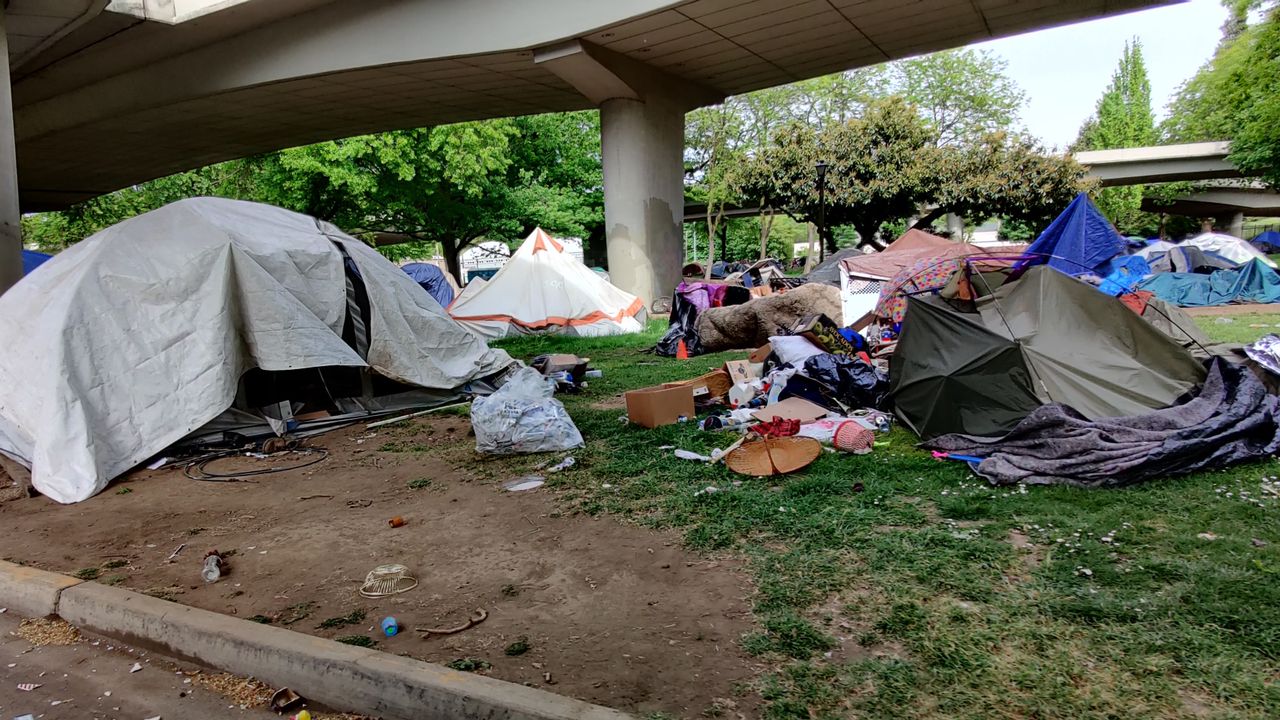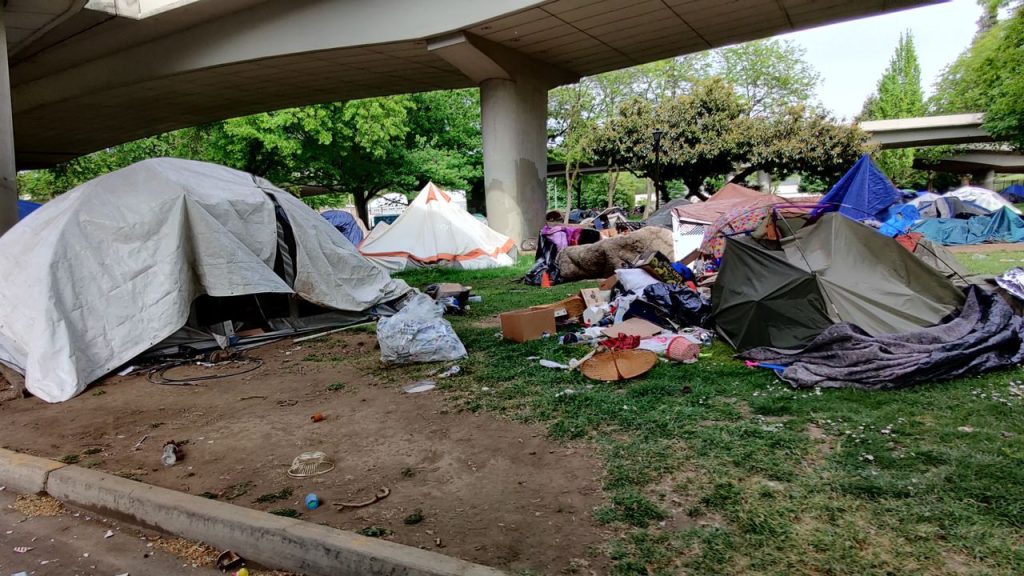
Kentucky bill aims to criminalize homelessness
By Milo Stevens.
A Kentucky bill introduced in the legislature January 9 aims to criminalize homeless encampments across the state. House Bill 5, called the “Safer Kentucky Act,” would allow police to arrest people camping in public areas, sleeping in their cars or generally trying to survive in the elements.
The bill also seeks to expand Kentucky’s “Stand Your Ground” law by allowing property and business owners to confront with a gun anyone they find camping on their properties and use “defensive force”—killing a homeless person with no criminal consequences whatsoever. House Bill (HB) 5 has 45 Republican co-sponsors and has been endorsed by the Kentucky state police union.
Kentucky ranks among the worst states in the nation on metrics of poverty, labor force participation, addiction, incarceration rates and more. Out of a total state population of 4.5 million, an estimated 743,000 Kentuckians, including 222,000 children, live below the federal poverty threshold—a poverty rate of 16.7 percent.
While HB 5 has been promoted as a way to curb crime rates across the state through the implementation of harsher penalties for petty crimes like loitering and trespassing, its real intent is to make life insufferable for those who are working poor and homeless while giving the wealthy license to carry out acts of vigilante violence.
The bill will illegalize street camping in public areas, allowing it only to take place in designated areas approved by local governments for camping. These designated areas are to be far removed from the general population or areas “used for public purposes” and are required to provide basic sanitation needs, virtually segregating one of the most vulnerable populations in the US with the mentality of “out of sight, out of mind.”

The bill defines unlawful camping as using “structures for the use of camping, including but not limited to tents, huts, temporary shelters, and vehicles.” If someone is found to be “unlawfully camping,” the first violation is punishable by a $250 fine, while repeated offenses will be classified as a Class B misdemeanor and the person can be sentenced up to 90 days in jail with another $250 fine. According to some reports, fines may escalate up to $5,000.
The possibility of fines and jail time, just for being homeless, will perpetuate homelessness even more as it becomes difficult to find employment with a criminal record. With destitute individuals jailed and unable to pay their own fines, the law would also amount to extortion of their often financially distressed families.
Criminalization of those unable to secure shelter comes in the midst of the collapse of an already strained social service system, due to decades of funding cuts and the rapid increase in the cost of living. The city of Lexington alone estimates there are 2,400 homeless people but only about 500-700 beds at local shelters. Most homeless shelters operate on volunteer work and donations from the community, working on the most threadbare of budgets. Lexington advocates estimate the “Safer Kentucky Act” will impact 700 children in the city’s public schools.
Kentucky is not alone in implementing such a statewide policy to criminalize homelessness. Texas, Missouri and Tennessee have already passed laws explicitly targeting homeless encampments. Tennessee is the first state to make it a felony to camp in parks and other public areas.
Such laws push desperate people further to the margins, compelling them to sleep in dangerous, hidden places where they risk freezing to death, being run over, drowning or burned in abandoned structures. During the recent cold snap, dozens of homeless people died of exposure.
HB 5 revives and perpetuates stereotypes of substance use disorders and mental health issues within the homeless community. On an individual level, the causes of mental health issues and addiction are complex and often interconnected, but one thing is certain: homelessness exacerbates each condition.
Far from resolving or providing services for those afflicted, HB 5 will make it easier for homeless individuals to be involuntarily committed to a mental health facility, even if they do not have a history of criminal behavior that is associated with endangering themselves or others. It will impose a “three strikes” law for repeat offenders and steep penalties for things such as drug possession. Fleeing from police will be classified as a Class C felony.
This bill also prohibits any beneficial use of state or federal funding through the Housing First program, which prioritizes permanent housing for homeless individuals before offering them mental health and/or addiction rehabilitative services, if they are needed.
“House Bill 5 does not help people get off the streets and into housing, and homelessness is in fact a housing problem,” George Eklund with the Coalition for the Homeless told Spectrum News 1. “We have seen a 58 percent raise in fair market rent since 2018. In the same time, we’ve seen a 73 percent increase in our homeless numbers.”
To quell any official form of opposition to the bill, Kentucky legislatures have made it virtually impossible for counties or city municipalities to opt out of enforcing it. In section 20, local governments are strictly told they are not able to “adopt or enforce any policy” which “prohibits or discourages the enforcement” of this bill. If this were to occur, the state’s attorney general may file a lawsuit against them.
[This article was originally published by WSWS here on January 22, 2024]

